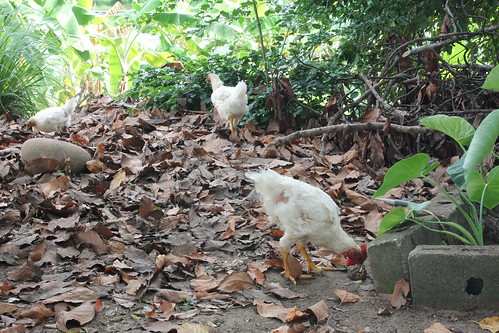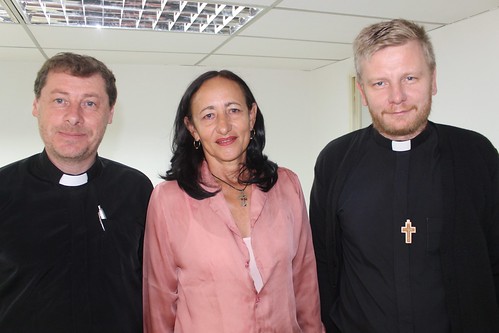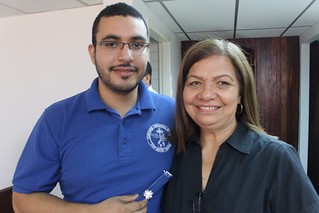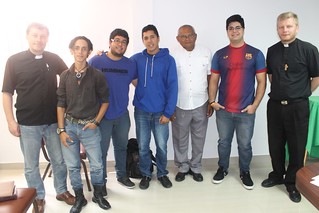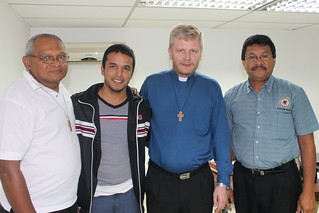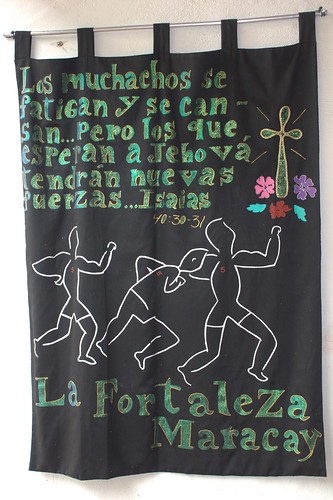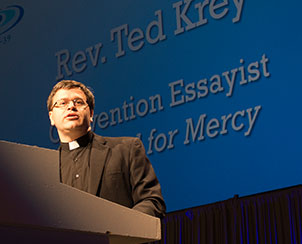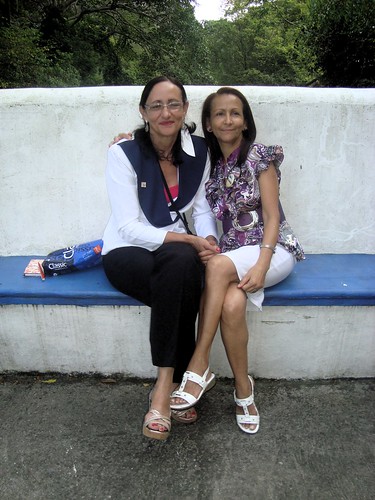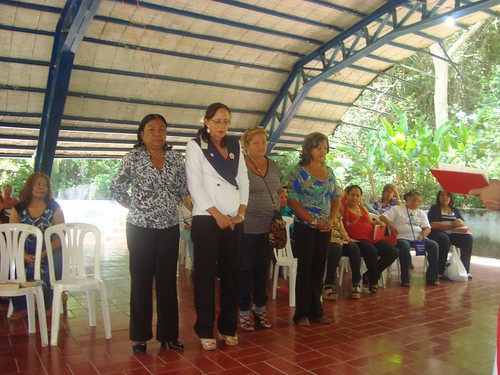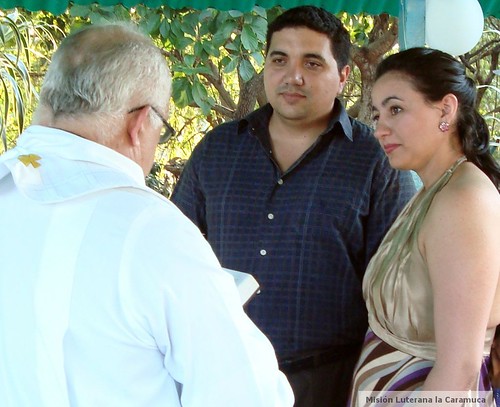Luz Maria and I have returned to Epiphany Lutheran Mission in La Caramuca after our first trip together since 2012. Luz Maria was invited to attend a conference of deaconesses from across Latin American sponsored by Lutheran Church - Missouri Synod World Missions in Latin America and the Caribbean. The centerpiece of the conference was a study of the epistles of St. Paul, led by Ginnatriz Vera de Mendoza. A native of Argentina, she was trained as a deaconess at Concordia Seminary of Buenos Aires and now lives in Yaritagua, Venezuela, with her husband, Angel Eliezer Mendoza, who is pastor of New Life Lutheran Mission there. They met while Angel Eliezer was a student at the seminary.
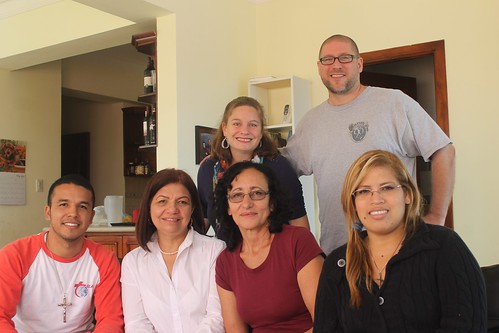 |
| Clarion and Joel Fritsche with Angel Eliezer Mendoza; Elsy Valladares de Machado; Luz Maria; and Ginnatriz Vera de Mendoza. |
We were met at the airport in Santo Domingo, the capital city, by missionary Joel Fritsche; his wife, Clarion, and two of their three boys. Pastor Fritsche served his vicarage at Christ Our Savior Lutheran Church of Freeburg, Illinois, where my mother is a member. From Santo Domingo it was a two-hour bus ride to Santiago, the second-largest city in the Dominican Republic, where the conference was held. The event drew deaconesses from Mexico, Guatemala, Peru, Panama and the Dominican Republic as well as Venezuela. In addition to Luz Maria and Ginnatriz, Elsy Valladares de Machado from Caracas represented Venezuela.
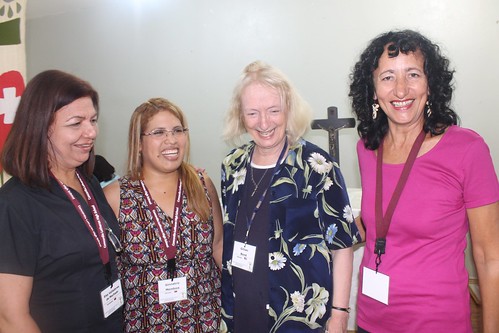 |
| Dr. Gillian Bond of Concordia Seminary, St.Louis, with Elsy, Ginnatriz and Luz Maria. |
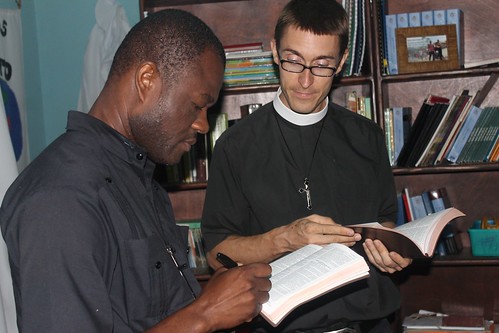 |
| Vicars Idjon Fritz and Justn Massey. |
Upon returning to Venezuela, we spent a few days in Caracas as I attended a meeting of the pastors of the Lutheran Church of Venezuela.
Now that we are back in La Caramuca, we are please to see continued progress on the construction of a new learning center and chapel. We also have expaned our chicken project.
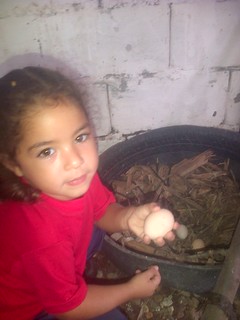 |
| Counting chickens and eggs. |
The inspiration for this project came from Luz Maria's daughter, Charli Santana. She obtained the chickens from her in-laws. At present we have three hens, one rooster and 10 chicks. The hens are producing three eggs per day. We use the eggs to prepare breakfast for 10 to 20 preschool children every morning. Typically the eggs are served with arepas, the corn-meal muffins that are a staple of the Venezuelan diet (the arepas are stuffed with eggs, deviled ham, cream cheese, sardines or whatever other filling is available). We have the space to raise a maximum of 100 hens, but we think a flock of 30 would be the optimum size to produce enough eggs to significantly reduce our dependence on purchased ingredients. Thanks to a donation from Jim Burns, we have built on to the chicken coop, bought more chicken feed and hope to build the flock up to 30 laying hens within three months. Jim is the brother of Kathy Conrad, wife of Daniel Conrad, a former LCMS missionary to Venezuela who is now serving as a missionary in Mexico City, Mexico.
Another goal of this project is teach the children and young people involved with our mission how to raise chickens in their own homes. Backyard chickens are a Venezuelan tradition that is in danger of being lost due to social and economic changes.
